CINCINNATI — It’s race season for many athletes between marathons, triathlons and Ironman races.
But for some athletes that have prosthetics those events aren’t always possible. A Cincinnati foundation is making sure para-athletes are getting every experience they can.
What You Need To Know
- David Whelan is the only male para-triathlete in the state of Ohio
- His foot and part of his leg was amputated after heavy equipment crushed his foot during a work accident
- After struggling with pain and depression, Whelan decided he needed to make a change, and took up biking, running, and swimming
- The Bridge Adaptive is a Cincinnati foundation that is working to bring all types of adaptive sports to the city and make the area a hub for adaptive sports
David Whelan is not your average cyclist. The para-triathlete uses a prosthetic leg to cycle 150 miles every week. But he surely doesn’t let that slow him down. And he can fly on the road.
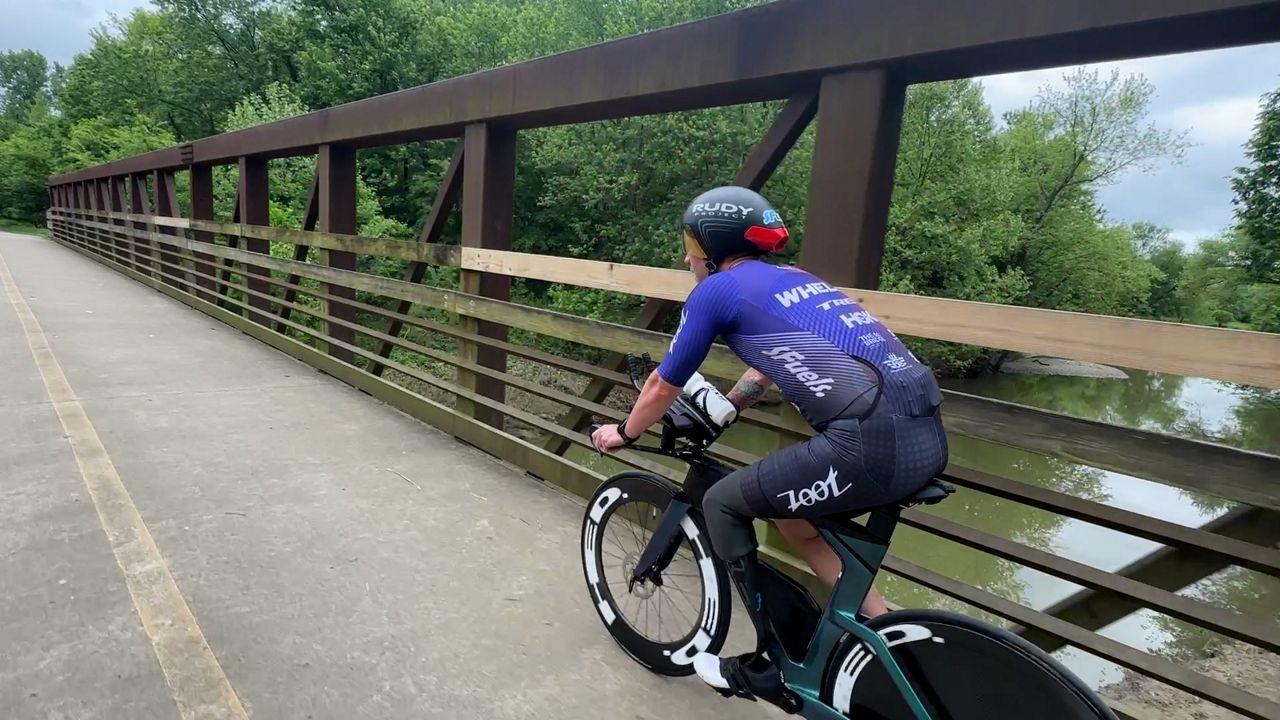
But it wasn’t an easy road to get here. After a work accident crushed his foot, he dealt with severe pain with a rare nerve condition and multiple amputations. After battling with depression and suicidal thoughts, Whelan knew he had to make a change.
“I started showing up for the day, and I started, you know, telling myself something different," Whelan said. "I started listening, you know, to a positive and powerful things that were going to start changing. You know, my inner dialog that I had and, you know, flipped the script on, on me telling myself how broken I was and start telling myself, well, I can do anything I just need to start doing it.”
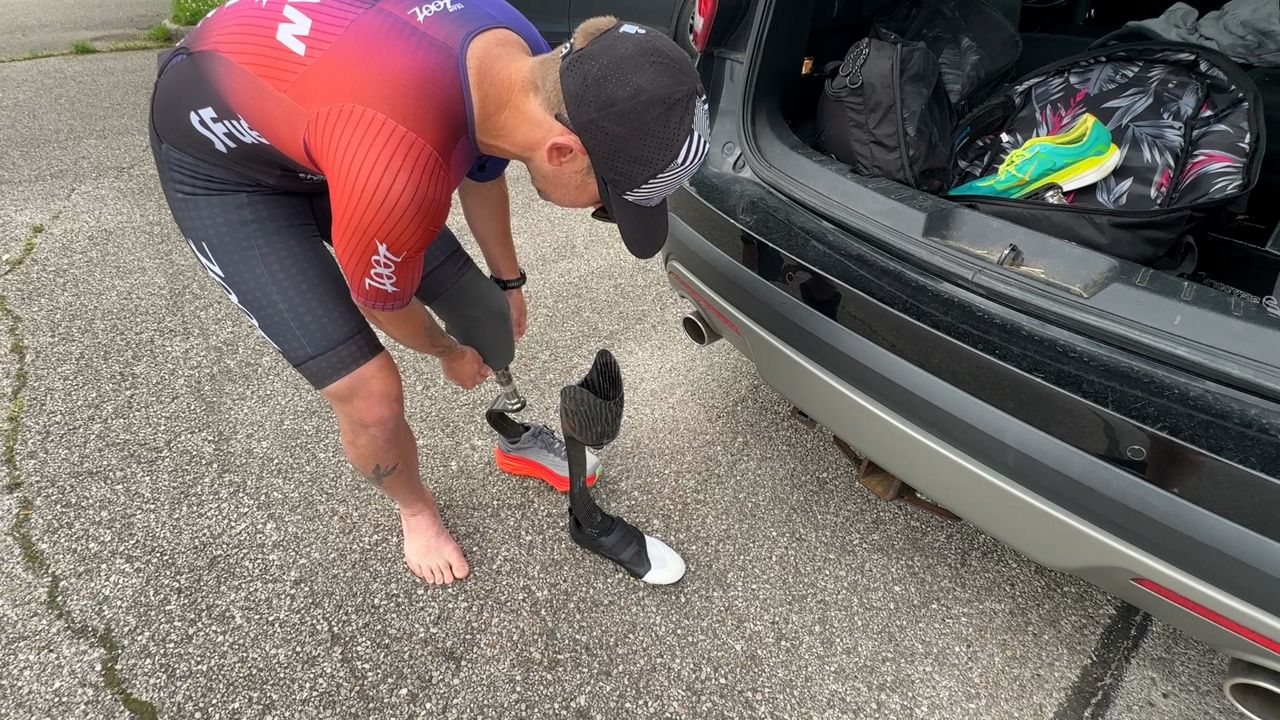
He has a completely different mindset.
“It is a beautiful day!” he said during his bike ride.
And as the only male para-triathlete in the state, Whelan knows his representation matters more than most.
“It’s pretty isolating," he said. "I also look at it as a great opportunity as well, though. In terms of what we’re doing with the Bridge Adaptive and trying to build adaptive sports, it now turns into a great conversation on how I’m able to create representation.”
Whelan is the Bridge Adaptive’s endurance chair member- working with para-athletes who run, swim, and bike.
“My ultimate goal is to bring para-triathlons here to Cincinnati," Whelan said.
Dr. Victoria Heasley is the co-founder and president of The Bridge Adaptive. She's also a physician at UC Health and professor at UC where she works with students to create adaptive equipment for these athletes. She works with athletes like Whelan to bring as many adaptive sports to Cincinnati.
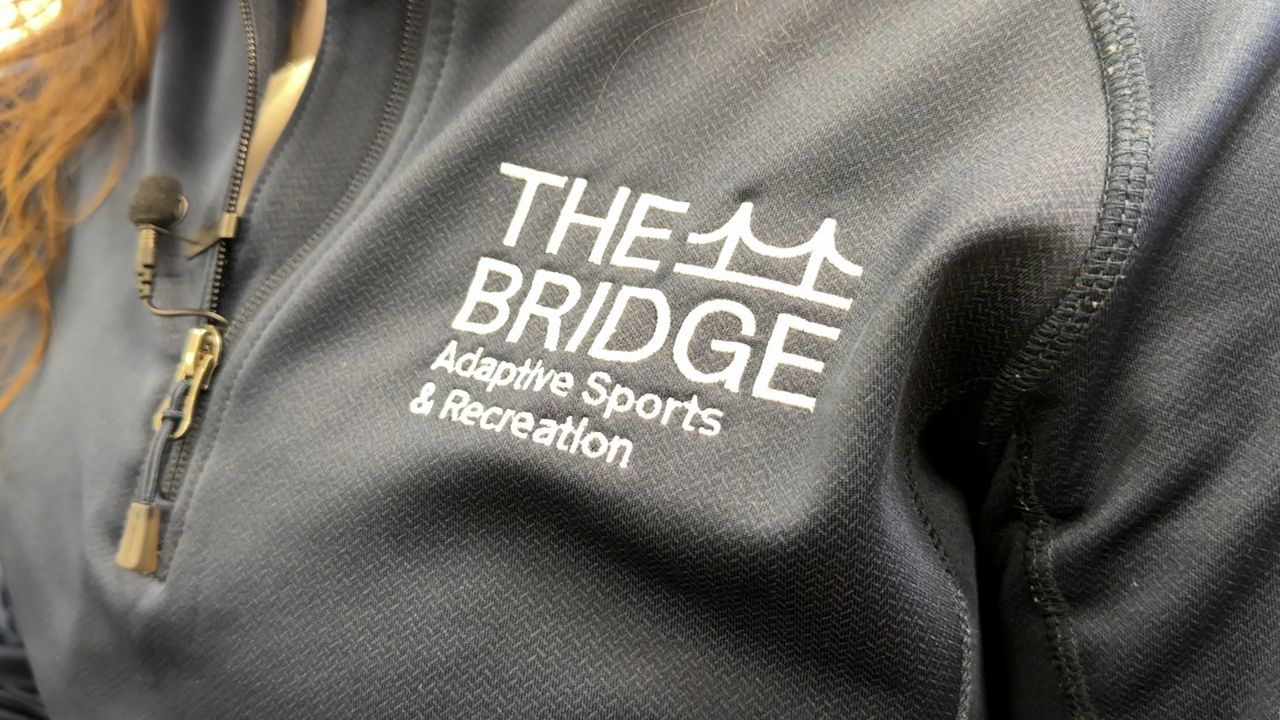
“We want to know what people want to do, and we try to bring that to Cincinnati," Dr. Heasley said. "So there's obviously already things that are going on that we run programming. But one of our missions, right, is that we help people find the sport or recreation they want to do. And so if it's something we don't have, we're like, well, we're going to solve that and we're going to bring it here.”
And she’s not stopping there.
“One of my big dreams is that Cincinnati's an adaptive sports hub, and we're certainly on the way to getting there," she said. "One of our big dreams is to actually have a physical location, a complex for adaptive gym and adaptive sports.”
For Whelan, he wants to have people to bond with over the everyday struggles and accomplishments of being a para-triathlete.
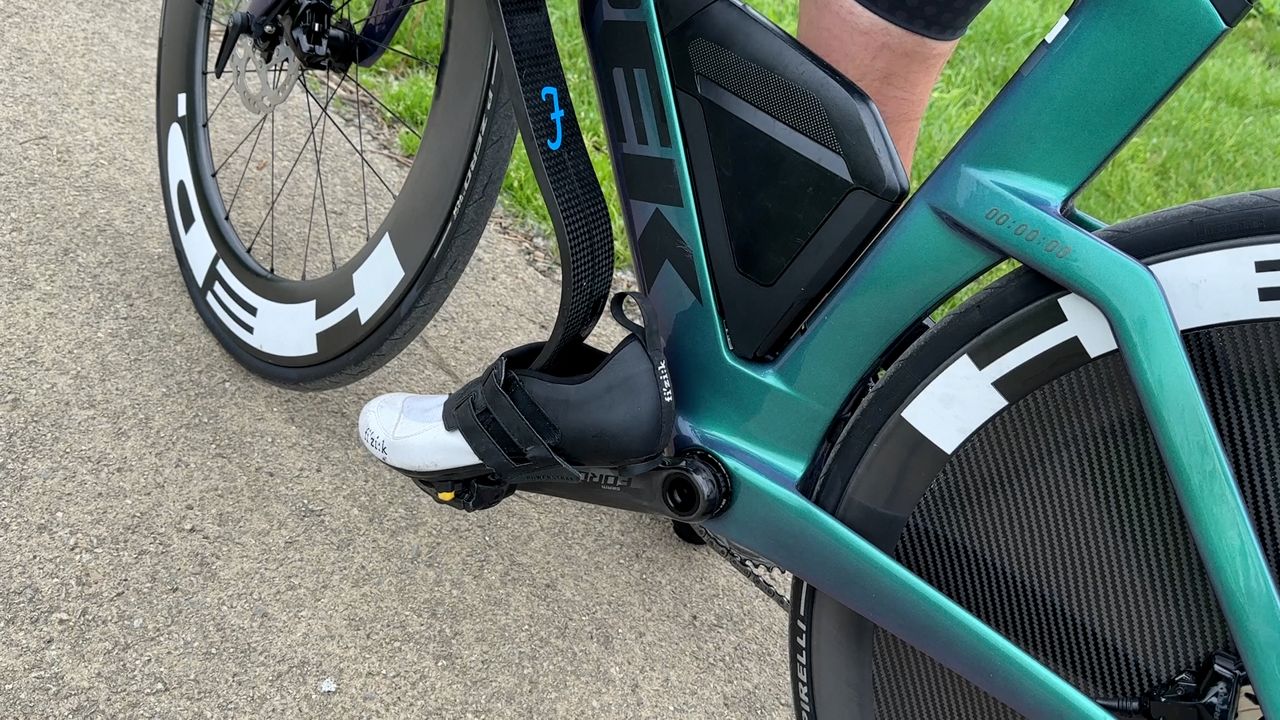
“I want friends to run with," Whelan said. "I want friends to cycle with that look like me in that, that are going through the same challenges that I'm going through that are also on prosthetics.”
While he continues to train alone, he hopes he won’t be for long.
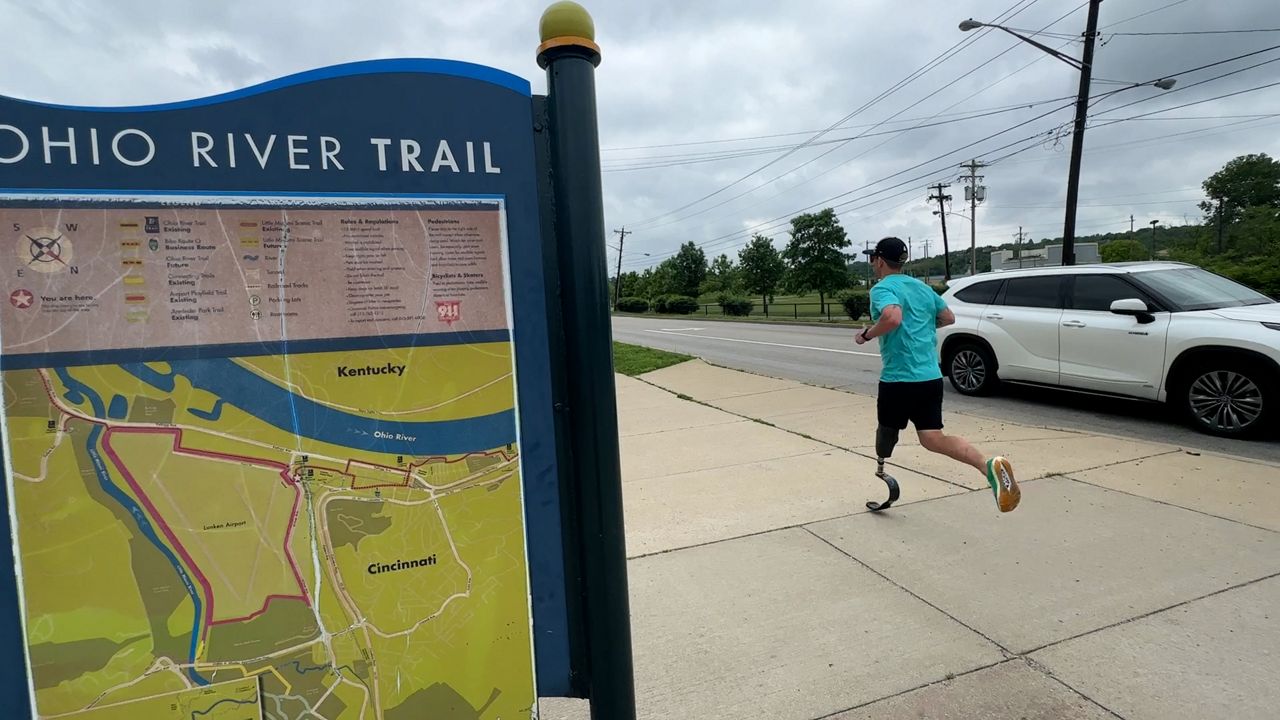
“That representation, it's massive," he said. "But it's not only big for the adaptive athletes that are competing in those too, like what that does for the public in general. That motivation and that inspiration and just how beautiful it is to see some of those athletes just get to the start line, and then how powerful it is to see them get to the finish line. That’s massive.”
Whelan just competed in a half Ironman earlier this month and is now preparing for a full Ironman in Norway in August- known as the toughest Ironman in the world.



